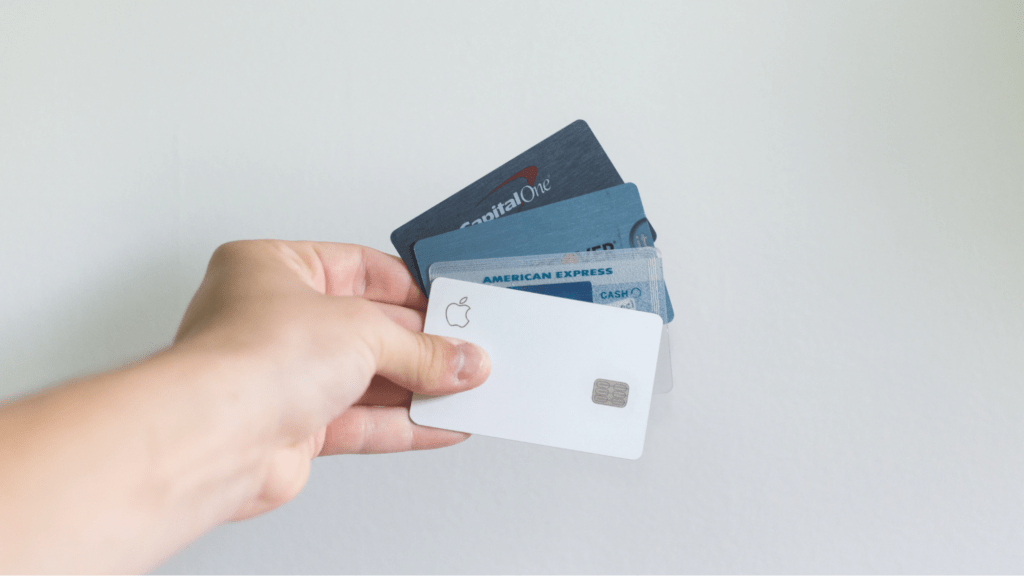Start Building Your Child’s Credit
A debit card is more than a convenient way to make payments. It can teach your child about saving, budgeting, and various other aspects of financial management. If you want your child to move away from cash and replace their piggy bank with a checking account, you may wonder, “Can a minor have a debit card?”
The short answer is “Yes,” but that doesn’t mean it’s time for a trip to the bank. Getting your child a debit card requires some planning, so this guide will show you what to consider before making the final decision.
When Can a Child Get a Debit Card?
A self-owned checking account with a debit card is typically reserved for legal adults (18 and over in most states). The good news is, you can open a joint account with your child sooner.
Most banks allow joint accounts once your child turns 13. You’ll have access to the account and its funds, which can be useful until your teen becomes more independent and financially responsible.
Note that some financial institutions have higher thresholds, so contact your bank to get the most accurate and up-to-date information. If you want your child to have a card before 13, you can sign them up for a popular alternative—prepaid cards.
Prepaid vs. Debit Cards

Source: Kindel Media
A prepaid card is similar to a standard debit card, except it’s typically not tied to a bank account. The parent obtains a card in their child’s name and loads it with funds directly. Some options allow transfers from third parties, which makes them a great introduction to the mechanisms of a regular card.
Age requirements for prepaid cards are typically low, with some providers imposing no restrictions at all. This is because the parent has full control over the account and can closely monitor their child’s spending. Most options come with various handy features, such as:
- Spending limits
- Chores lists
- Vendor restrictions
If you want your child to develop healthy spending habits early in life, a prepaid card is an excellent first step. When the time comes, they can graduate to a regular debit card—if you believe the benefits outweigh the pitfalls.
Should Teens Have a Debit Card?
There are several advantages of giving your child a debit card:
- It lets them practice self-accountability and offers more freedom than cash
- They can manage their income more conveniently once they get a job
- Some debit cards come with perks and rewards to encourage healthy spending behavior
Still, none of these benefits matter much if your child doesn’t have the right perception of money. Transitioning from cash to “virtual money” can enable overspending as your child can’t see the money going out.
This is why you should only get a debit card for your child when you’re sure they’ll use it wisely. Teach them about the importance of saving and have a firm grip on their spending until they’ve proven themselves reliable.
How To Find The Right Debit Card for Your Child

Source: Avery Evans
All debit cards look the same at first glance, so you might think there’s not much difference between different banks and their products. This isn’t necessarily true, so you should do thorough research to find the best option for your child.
The following table breaks down the main factors for selecting the best debit card:
| Factor | What To Look For |
| Balance requirements | Choose a card without minimum balance requirements—accounts imposing them charge fees if the amount drops below the threshold |
| Overdraft protection | Some banks let users spend more than their available balance and charge hefty fees for overdrafts. Find an option that won’t let your child expose themselves to debt |
| Mobile banking and app support | Your child’s card provider should offer at least some of the following options:Mobile banking through the bank’s appDigital wallets (Apple Pay, Google Pay)Peer-to-peer transfer apps (Venmo, CashApp) |
| Rewards | Many debit cards support cash back, points, and similar rewards, so look for the perks your child will benefit the most from |
After you compare different options and choose the most suitable one, the hard part is over. All that’s left to do now is visit the bank with your child and request to open the account. The process shouldn’t involve more than a single trip to the bank, and your child should get the card within a few business days. When it arrives, it’s time to teach your child how to use it properly.
How To Educate Your Child on Debit Cards
It may take some time for your child to get accustomed to a debit card, but you shouldn’t have trouble showing them the ropes. Start with the basics, such as:
- Fees
- ATMs
- Mobile transfers
- Contactless payments
After checking the above boxes, you should use the card as an opportunity to teach your child about financial management. Give them a certain amount of money each month and see how they spend it. Once the initial excitement has worn off, your child should start being frugal with their money and show some responsibility.
The main reason this matters is that a debit card is only the beginning of your child’s relationship with banks. They’ll need discipline and proper spending habits to take their independence to the next level and obtain another common financial product—a credit card.
When Should Your Child Get a Credit Card?

Source: RODNAE Productions
Credit card use among teens is on the rise, so there’s a high chance your child will want one at some point. Before this happens, you need to make sure they understand the responsibility credit cards carry, as seemingly small spending mistakes can have long-term negative consequences.
Debit cards don’t impact your child’s credit score, so credit building is an important topic you’ll need to cover before your child gets access to a financial product that does. You should have ample time to teach them all they need to know, as your child may not be eligible for a credit card before turning 21.
Because of the CARD Act of 2009, anyone under this age must prove they can repay the debt independently to be considered for a credit card. Alternatively, they need to have a co-signer over 21 who can be held accountable for it.
Some parents add children as authorized users of their cards to get around this limitation and help them build credit earlier in life. While this method does give a child access to a credit card, it’s dangerous for three key reasons:
- If the child isn’t responsible enough, their credit card use can damage the parent’s credit score
- The parent is liable for all charges and risks exposing themselves to significant debt
- The child doesn’t build an independent credit profile as an authorized user. When they’re removed from the card, they have to start from scratch because all credit history associated with the card gets deleted from their file
To help parents avoid these issues and support their children’s future in a risk-free way, Austin Capital Bank offers FreeKick.
Use FreeKick To Build Your Child’s Credit and Protect Their Identity
With so many restrictions on minors obtaining credit cards, a service like FreeKick that provides credit building features is the workaround you need. Offered by Austin Capital Bank, FreeKick is an FDIC-insured deposit account that helps you build credit for your child while also protecting the identities of your whole family.
Three Steps for Using FreeKick’s Credit Building Service
FreeKick’s credit building service is available for children aged 13 to 25. Take the following three simple steps to help your child establish a credit history early on in life:
- Create an Account—Go to FreeKick.bank, sign up for an account, and choose a deposit that suits your budget
- Set It and Forget It—FreeKick will start building 12 months’ worth of credit history for your child
- Keep Growing—After 12 months, you can either close the account without any fees or choose to continue building credit for your child for another year
This service gives your child a credit head start of up to five years when they turn 18, which will help them save $200,000 during their lifetime through favorable loan terms and other financial perks.
How FreeKick Protects Your Child’s Identity
Child identity theft happens every 30 seconds, and without a secure identity, your child’s credit profile will be standing on a shaky foundation. This is why it’s important to invest in identity protection when you’re trying to give your children a bright financial future. FreeKick’s identity protection services include:
| Services for Minors | Services for Adult Children and Parents |
| Credit profile monitoring Social Security number (SSN) monitoring Dark web monitoring for children’s personal information Up to $1 million identity theft insurance Full-service white-glove concierge credit restoration Sex offender monitoring—based on sponsor parent’s address | Credit profile monitoring SSN monitoring Dark web monitoring for personal information Up to $1 million identity theft insurance Full-service white-glove concierge credit restoration Lost wallet protection Court records monitoring Change of address monitoring Non-credit (Payday) loan monitoring Free FICO® Score monthly FICO® Score factors Experian credit report monthly |
What FreeKick Costs
FreeKick offers two pricing plans:
| FDIC-Insured Deposit | Annual Fee |
| $3,000 | $0 (Free) |
| No deposit | $149 |
With both plans, you get:
- Credit building for six children aged 13 to 25
- Identity protection for two parents and six children aged 0 to 25
Say goodbye to credit card hassle and help your child establish a good credit profile—sign up for FreeKick today.
Featured image source: Leeloo Thefirst

Freekick provides a double dose of financial empowerment and security for your whole family. It helps teens and young adults build strong credit profiles and offers identity motoring for up to two adult parents and six children under 25.





